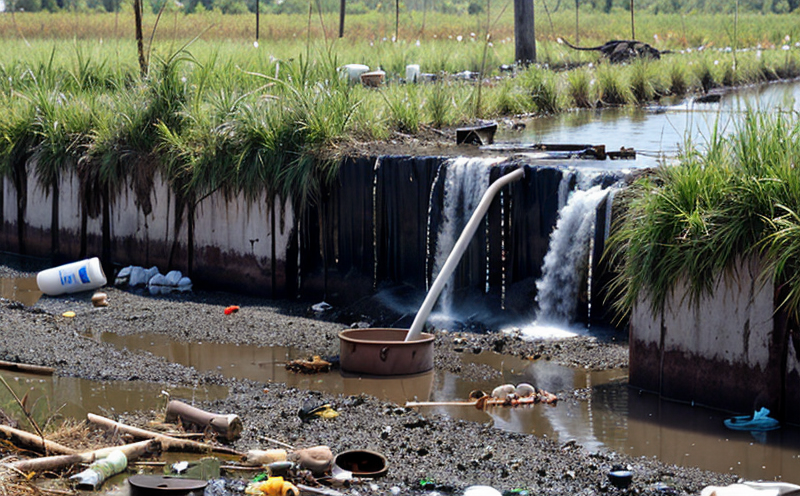Agricultural Soil Pollutant Testing
In today’s world, agricultural soil pollutant testing is an essential practice to ensure environmental and public health safety. Agricultural soils are often exposed to pollutants from various sources such as industrial activities, atmospheric deposition, agricultural practices, and municipal waste disposal. Accurate and reliable testing of these pollutants helps in assessing the impact on soil quality and subsequent crop production.
The testing process involves several steps including sampling, sample preparation, analysis using advanced instrumentation, and interpretation of results to determine compliance with relevant standards. Quality managers, compliance officers, R&D engineers, and procurement teams play critical roles in ensuring that these tests are conducted accurately and consistently across different regions and climates.
Our laboratory offers comprehensive agricultural soil pollutant testing services tailored to meet the needs of our clients. By leveraging state-of-the-art analytical techniques, we provide accurate and timely results which help stakeholders make informed decisions about soil management practices.
The following sections delve deeper into the applied standards used in this process, quality assurance measures implemented, customer impact and satisfaction, and frequently asked questions regarding agricultural soil pollutant testing.
Applied Standards
| Standard Number | Description |
|---|---|
| ISO 17025:2017 | Certification for the general requirements for the competence of testing and calibration laboratories. |
| ASTM D4386-19 | Standard test method for determination of volatile organic compounds in water by purge-and-trap gas chromatography with mass spectrometric detection. |
| Standard Number | Description |
|---|---|
| EN 14865:2009 | Method for the determination of heavy metals in soil by inductively coupled plasma optical emission spectrometry. |
| IEC 62321-1:2017 | Environmental testing - Part 1: General requirements and test methods. |
The above standards form the backbone of our testing protocols ensuring that we adhere to internationally recognized guidelines when performing agricultural soil pollutant tests. Our proficiency in these standards guarantees accurate and reliable results, thereby supporting responsible environmental stewardship.
Quality and Reliability Assurance
We maintain a robust quality management system compliant with ISO 17025:2017 to ensure consistent high-quality testing services. Our team of experts uses cutting-edge laboratory equipment calibrated regularly against recognized standards to guarantee precision in measurements.
To uphold reliability, we have established stringent internal controls including peer review processes, regular calibration checks, and continuous training for our staff on the latest methodologies and technologies related to agricultural soil pollutant testing. This commitment ensures that every test conducted meets rigorous quality criteria set forth by industry best practices.
Our clients can trust us with their most sensitive samples knowing full well that we prioritize accuracy above all else while maintaining strict confidentiality regarding proprietary information shared during testing processes.
Customer Impact and Satisfaction
The importance of reliable agricultural soil pollutant testing cannot be overstated. Accurate data not only informs policy decisions but also influences best practices among farmers and other stakeholders involved in land use management. By providing timely and precise results, we empower our customers to take proactive measures towards sustainable agriculture.
Our approach focuses on delivering actionable insights through clear reports that highlight areas requiring intervention or improvement based on the findings from our tests. This enables organizations to address issues before they escalate into larger problems affecting soil health and productivity.
We strive for excellence in customer service, ensuring prompt communication throughout each project lifecycle. From initial consultation to final report delivery, we maintain transparent channels of interaction which foster trust between us and our clients. Positive feedback from satisfied customers underscores the value added by our agricultural soil pollutant testing services.





